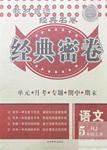题目内容
【题目】A grandmother in Chengdu, Sichuan province, who has ________ pole-dancing is living proof that life doesn’t have to gradually stop when you’re old.
A. taken to B. taken on
C. taken in D. taken up
【答案】D
【解析】
试题分析:A. taken to喜欢,走向;B. taken on呈现,承担;C. taken in对……加以考虑;D. taken up从事。句意:四川成都有一位从事钢管舞的老奶奶就是生动的证明:当你老了,生命不能因此而渐渐停止。此处指从事钢管舞,故选D。

练习册系列答案
 作业辅导系列答案
作业辅导系列答案 同步学典一课多练系列答案
同步学典一课多练系列答案 经典密卷系列答案
经典密卷系列答案
相关题目